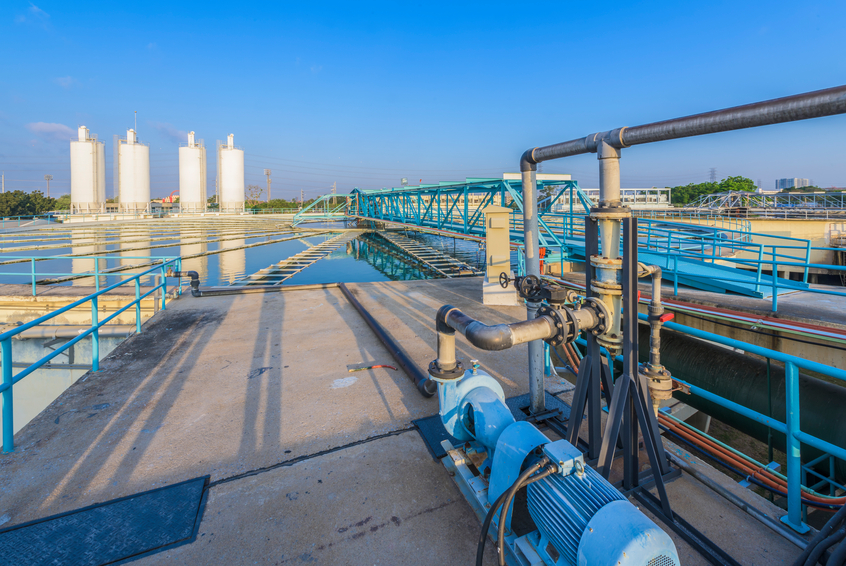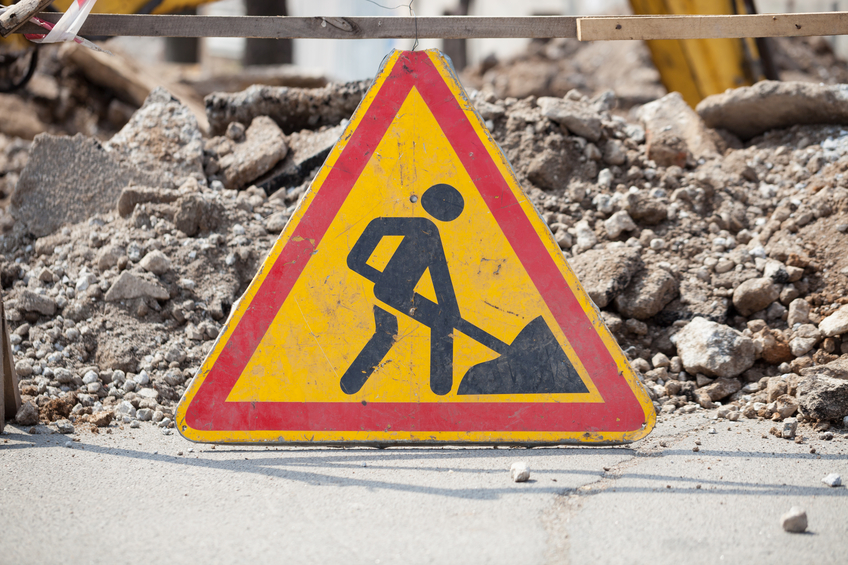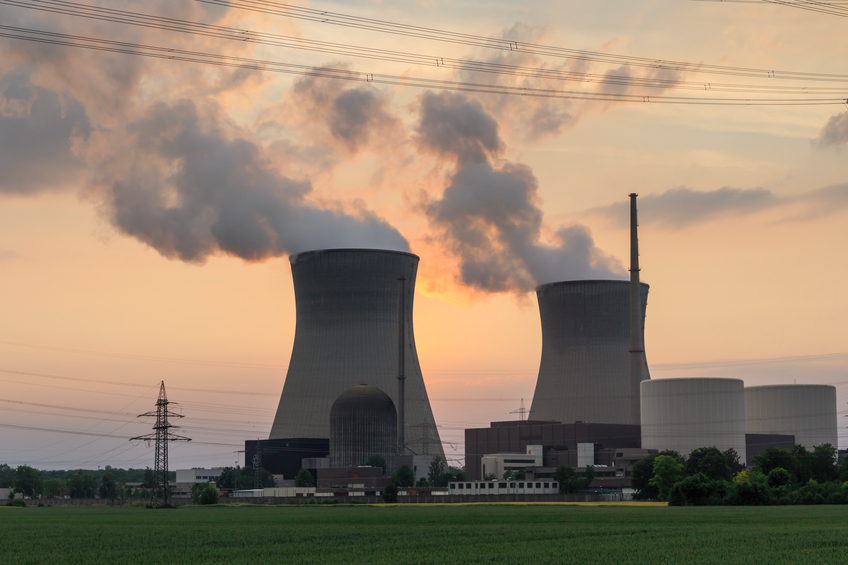Mississippi Industrial and Ethics 15 PDH Discount Package 2
Courses in this Package
Detectors and Indicators for Industrial Facility Systems (D05-002)
Introduction to Radiation (Y03-004)
Nuclear Energy Principles and Reactor Fundamentals (N05-002)
Determining Negligence in Engineering Failures (LE2-012)

This online engineering PDH course provides a basic understanding of instrumentation and control necessary for safe operation and maintenance of energy facilities and their support systems. In particular, this course describes the principles of construction, operation, and failure modes for various types of detectors including temperature detectors, pressure detectors, level detectors, flow and position indicators.
This 5 PDH online course is applicable to mechanical, industrial and nuclear engineers, construction and design personnel, technical staff and facility operators who are interested in gaining a better understanding of detector applications.
This PE continuing education course is intended to provide you with the following specific knowledge and skills:
- Learning the different types of equipment detectors and indication circuits
- Understanding the operation of equipment detectors and indication circuits
- Knowing the failure modes of equipment detectors and indication circuits
In this professional engineering CEU course, you need to review Modules 1 through 5 of the Department of Energy Publication DOE-HDBK-1013/1-92, "Instrumentation and Control".
Upon successful completion of the quiz, print your Certificate of Completion instantly. (Note: if you are paying by check or money order, you will be able to print it after we receive your payment.) For your convenience, we will also email it to you. Please note that you can log in to your account at any time to access and print your Certificate of Completion.

This online engineering PDH course provides an overview of the types of radiation, the health effects due to exposure and the way it is regulated.
Radiation has always been present and is all around us. Life has evolved in a world containing significant levels of ionizing radiation. We are also exposed to man-made radiation from sources such as medical treatments and activities involving radioactive material.
The health effects of radiation are well understood. Since the early 20th century, radiation’s effects have been studied in depth, in both the laboratory and among human populations. Because of the known health risks of radiation, it must be carefully used and strictly controlled. A balance must be struck between radiation’s societal benefits and the risks that radiation poses to people, health and the environment.
The Canadian Nuclear Safety Commission (CNSC) regulates the use of nuclear energy and materials to protect the health, safety and security of Canadians and the environment; and to implement Canada's international commitments on the peaceful use of nuclear energy. It also sets dose limits to prevent workers and the public from excessive radiation exposure.
This 3 PDH online course is applicable to safety engineers and professionals who are interested in learning more about nuclear safety.
This PE continuing education course is intended to provide you with the following specific knowledge and skills:
- Understanding the definitions of atoms, isotopes and radioisotopes
- Familiarizing with the types of radiation: non-ionizing and ionizing radiation
- Knowing the natural and man-made sources of ionizing radiation
- Understanding the health effects of radiation exposure and how it causes cancer
- Familiarizing with the epidemiological evidence of the effect of the radiation exposure
- Identifying the radiation dose limits and the typical radiation doses produced by natural and man-made sources
- Learning the types of radiation doses: absorbed, equivalent and effective dose
- Familiarizing with the rules regulating radiation
Upon successful completion of the quiz, print your Certificate of Completion instantly. (Note: if you are paying by check or money order, you will be able to print it after we receive your payment.) For your convenience, we will also email it to you. Please note that you can log in to your account at any time to access and print your Certificate of Completion.

This online engineering PDH course is a graded summary of important aspects of the Light Water Reactor (LWR) core and plant systems.
There are two types of LWR technologies, Pressurized Water Reactor (PWR) and Boiling Water Reactors (BWR). This course discusses fundamental design traits of each providing contrasts between performance and safety features. Its intent is to provide a clear understanding of nuclear terminology associated with LWR technology, including fundamentals, systems, safety, and regulations.
This 5 PDH online course is applicable to industrial and nuclear engineers as well as other technical professionals who are interested in learning more about Light Water Reactor systems.
This PE continuing education course is intended to provide you with the following specific knowledge and skills:
- Familiarizing with the basic concepts of radioactive materials and radioactivity
- Identifying the potential effect of various types of radioactive particles and waves on the human body
- Learning about the reactions in fissile material and the resulting decay products as the various forms of radioactivity
- Understanding the basic core physics principles core physics, reactor control and heat transfer
- Learning about the Pressurized Water Reactors (PWR) and the Boiling Water Reactors (BWR)
- Knowing the material degradation issues such as water chemistry issues and fuel and structural material issues
- Identifying safety issues such as initiating events, anticipated frequency of occurrence and barriers of defense
- Knowing the reactor instrumentation and control: reactor data acquisition system and the reactor protection and engineered safety feature actuation system
In this professional engineering CEU course, you need to review the course document titled, “Nuclear Energy Principles and Reactor Fundamentals”, which is based on U.S. Department of Energy National Laboratory operated by Battelle Energy Alliance “Reactor Fundamentals
Handbook”, publication INL/EXT-19-53301 Revision 0, dated April 2019.Upon successful completion of the quiz, print your Certificate of Completion instantly. (Note: if you are paying by check or money order, you will be able to print it after we receive your payment.) For your convenience, we will also email it to you. Please note that you can log in to your account at any time to access and print your Certificate of Completion.

This engineering online PDH course will establish conditions under which, when an engineering failure has occurred, it can be attributed to negligence.
Five causes of failure are proposed: negligence, rare failure mode, overlooked failure mode, new (previously unrecognized) failure mode, and incorrect assessment of a known risk. Negligence is the only cause that involves failing in an ethical duty. These concepts are illustrated with five case studies of failures ranging from gross negligence to absolutely unforeseeable events: 1) the Great Boston Molasses Flood of 1919, for which a new possible cause was identified 95 years later (2014); 2) a building collapse in Bangladesh in which over 1,000 people died—one of the worst structural engineering disasters in history; 3) a meteorite strike of a private residence; 4) the crash of the British-French Concorde supersonic airliner, caused by an unlikely tire blow-out; and 5) radiation overdoses received by patients treated by the Thorac-25 medical linear accelerator, caused by errors in the software controlling the machine.
The 2 PDH online course is intended for engineers concerned with ethical behavior in engineering practice.
This PE continuing education course is intended to provide you with the following specific knowledge and skills:
- Understanding the definitions of negligence and standard of care
- Relating safety to risk
- Knowing the principle of Knightian uncertainty
- Avoiding the retrospective fallacy in accident investigations
- Avoiding the fallacy, in accident investigations, of assuming perfect engineering practice
- Using the results of failure investigations appropriately
- Being aware of the negative effects of punishment on learning from accidents
- Categorizing the general causes of engineering failures
Upon successful completion of the quiz, print your Certificate of Completion instantly. (Note: if you are paying by check or money order, you will be able to print it after we receive your payment.) For your convenience, we will also email it to you. Please note that you can log in to your account at any time to access and print your Certificate of Completion.